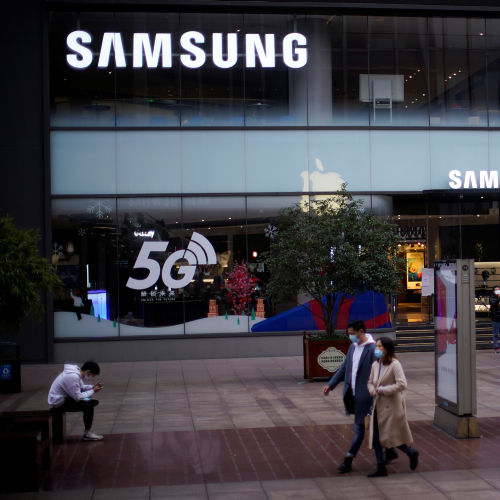Technology giant promised to source all of its energy use in the US, China and Europe from renewables but they accounted for only 17.6% of global mix in 2020
(AF) Samsung Electronics, the South Korean technology giant, is failing to uphold a commitment to switch to renewable energy, leading environmental group Greenpeace said on Tuesday.
Non-fossil fuels accounts for less than 20% of its global electricity use, the group alleged, adding that Samsung needs to broaden and deepen its commitment if it is going to have a genuine impact in the fight against climate change.
The company is the flagship subsidiary of the Samsung group, by far the biggest of the family-controlled conglomerates known as chaebol that dominate business in South Korea, the world’s 12th-largest economy.
In 2018, Samsung Electronics promised to source all of its energy use in the US, China and Europe from renewables within two years, a target it said in March it had met.
But renewables only accounted for 17.6% of the firm’s global energy mix in 2020, Greenpeace said, highlighting that its two key production hubs – South Korea and Vietnam – were not included in the original commitment.
The two countries account for about 80% of its worldwide electricity consumption and in both of them it “depended heavily on fossil fuels”, Greenpeace said in its report, which was based on disclosures and statistics from Samsung itself.
Samsung does own solar and geothermal power facilities in South Korea, but they generated only “a tiny fraction” of its gigantic 17 terawatt-hour electricity usage there last year.
AMONG THE BIGGEST CONSUMERS
Samsung Electronics is among the country’s biggest consumers of electricity and the situation presents a challenge for President Moon Jae-in’s goal of carbon neutrality by 2050.
“Samsung has demonstrated that they can achieve 100% renewable energy in a short period in the US, Europe, and China,” said Hyunsook Lee of Greenpeace. “It is essential to set a 100% renewable energy conversion goal in Korea and Vietnam, which are vulnerable to climate crises.”
Climate change and the transition from fossil fuels to sustainable energy is arguably the most pressing issue facing the world today, analysts say.
The IEA has outlined a number of recommendations for achieving net zero carbon dioxide emissions by 2050, which will require massive investments and unprecedented levels of international cooperation.
The agency urges a ramping up of renewable energy. Renewables will account for almost 90% of energy generation by 2050, compared with 29% in 2020, IEA said.
“It has been astonishing how, in the grip of a global pandemic, climate change has risen to the top of the political and corporate agenda,” Simon Webber, lead portfolio manager at Schroders, said.
With reporting by Agence France-Presse
ALSO SEE:
Samsung shares rise after Lee’s death sparks hope of shake-up
Samsung hooks up with Vodafone in breakthrough 5G network deal
Energy agency calls for halt to new oil and gas exploration
























